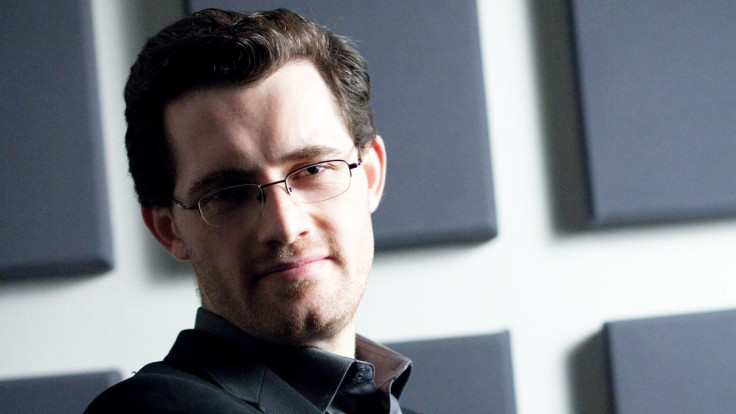Abzû is a beautiful, personal game that allows players to explore the mysteries of the ocean, while commenting on the relationship humanity has with the creatures living below the surface. One of the core pillars of the game is the music, featuring a score from Grammy-nominated composer Austin Wintory. The composer for such games as Journey, Assassin’s Creed: Syndicate and The Banner Saga talked with iDigitalTimes on how music and gameplay play a closer relationship than you might think, and how Abzû needs both gameplay and music to be fully realized.
Making a video game score is nothing like making a score for a movie or show. Because video games are interactive, the music needs to be dynamic and change with what is happening. “We aren’t actually making tracks or even cues in the traditional film sense,” Wintory told iDigitalTimes. “The music is actually written from the ground up to be dynamic and interactive.”
“I’ve had to play the game quite a lot in order to wrap my head around exactly what the player’s experience is going to likely be, and then craft music to be maximally compatible with that,” said Wintory. “I don’t want to dictate to the player what they should be doing or thinking, but I also don’t want the music to be a shot in the dark with what is going on. The process ends up being a lot of experimentation, trial and error, and playtesting and iterating.”
Because of this philosophy, Wintory has probably played more of Abzû than most people ever will. At the time of the interview, Wintory’s Steam account said he’s already logged 82 hours into the debut game from developer Giant Squid.
“To me, a hands-on experience is crucial,” he said. “If the score comes from a deep understanding of the game, it has a better chance of adding something meaningful to the game.”
While it seems somewhat obvious that a score would be influenced by the game it is for, Abzû was also developed in reverse, with gameplay experiences getting influenced by the music Wintory was making. “There was one area that I didn’t know what Matt [Nava, founder of Giant Squid] was going to do with the space,” he said.
“I designed the piece so it could be remixed by the game several different ways. The idea was to see how development went, then zero in on one of these approaches to tie it all together.”
The music must have impressed, because it was decided nothing could be cut. “Matt liked the music so much, he designed the experience to last much longer so we would hear every kind of variation from this remixing process,” Wintory said.
Wintory’s approach to scoring Abzû didn’t come from the ocean. Instead, he draws comparison to a beehive.
“As soon as I started on [Abzû], I thought it would be really interesting to have this rolling cloud of activity,” he said. “I always use this analogy of a beehive. A beehive is a single object, but looking at it, there are tens of thousands of bees swarming around the hive. Taken from afar, it looks like one sort of blurry, single object.”
The instrumentation started out simple, only focusing on a harp. Eventually, Wintory realized he’d need more sounds to get the emotions he wanted. “The harp is the backbone of this project. I originally thought I didn’t want to use any orchestra at all, just a harp,” he said. “But then I thought, what also would be nice are voices. So then I thought of using a choir as instruments instead of an orchestra.”
The harp and choir still weren’t enough, so more instrumentation started getting used. “I found myself still needing more. When all's said and done, I started playing around with an orchestra being featured, and now they are quite heavily featured,” Wintory said. “The orchestra is a prominent part of the early part of the game, but they gradually taper off. The voices and harp then become really dominant. They feel like they are the inevitable destination of the score.”
That still wasn’t enough. One last piece to the puzzle was needed, and it came in the shape of an oboe. “The last ingredient is something I’ve done very consistently with my scores is having a single soloist or a few soloists,” said Wintory. “You know the Olympic torch runners in the opening ceremony? I’ve always liked that there was a soloist or two who have this role of the flagbearer for the score.”
Wintory’s previous works all reflect this similar philosophy. “On Journey, it was a cello. On Assassin’s Creed: Syndicate, I had alternating cello and violin solos, representing the twins Jacob and Evie Frye you play as,” he said. “For this one, I found myself, for reasons I have no explanation for, featuring an oboe.”
The process for finding an oboe soloist came from a place of mutual respect. Wintory mentioned finding a Journey cover on YouTube from user Field of Reeds, and being blown away by what he heard. After reaching out, Wintory found himself a new soloist. “Happily for me, she was totally on board with the idea,” he said.
Abzû releases for PS4 and PC Aug. 2. If previous games are any indication, the Abzû soundtrack will also be seeing a separate release.
So what do you think? Are you excited to play Abzû? Are you more excited to listen to Wintory’s latest score? Let us know your thoughts in the comments section below.


















